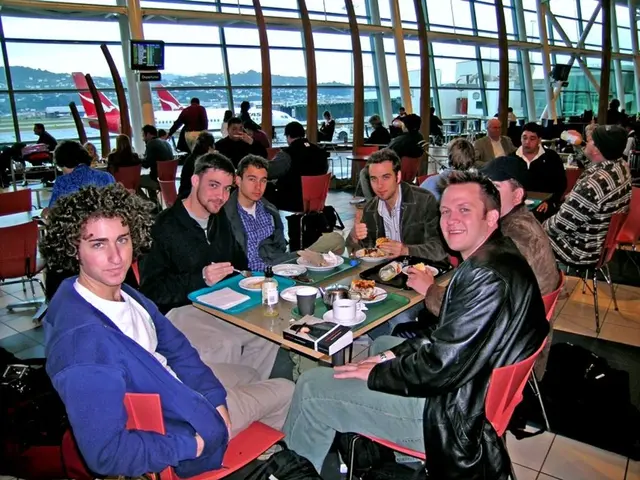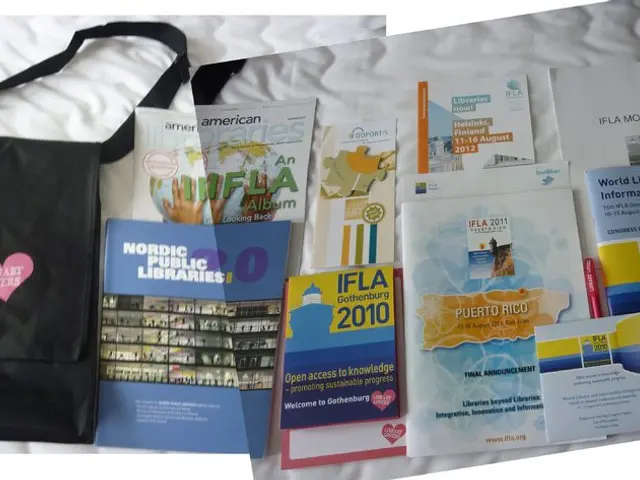Unfair Pricing for Foreigners in Thailand
Tourist Scam Alert: Identifying Phuket's Most Prevalent Methods of Deception Against Visitors
Visiting Thailand can sometimes feel like a wallet-draining experience, especially for foreigners. This is due to the common practice of dual pricing, where foreign tourists are often quoted higher prices compared to local Thai residents. This occurs frequently in housing rentals, transport, and even market items. As one blogger explained on the "Zen" platform, fresh-squeezed juice prices might be displayed as 50 baht using familiar numbers, but another price tag shows '20' in Thai numerals.
Non-return of Deposit
When renting accommodation in Thailand, a deposit (security) is required, usually equating to one to two months' rent. In theory, the deposit should be returned to the tenant at the end of the contract. However, this doesn't always happen, and it's especially problematic for "winter tourists" who need to fly home and may not have enough time to resolve disputes. In such cases, a landlord may delay returning the deposit, hoping that the tenants will simply leave, or they might search for excuses to not return it, such as blaming the tenants for damaging or breaking something in the apartment.
Theft on the Beach and in Homes
While rare, theft of valuable items from tourists on the beach does occur. Although many Thais view theft as extremely low and shameful, not everyone shares these moral principles. In more populated areas like Phuket and Pattaya, homes rented by tourists can also be targeted, as these thieves often believe that tourists with expensive houses must have money.
Deception in Transport Rental
Renting a motorcycle, car, or jet ski requires a monetary deposit. Upon returning the vehicle, hidden damages could be used as a pretext to demand an excessive amount of money for repairs. To avoid this, it's best to photograph the vehicle from all angles at the beginning.
A Russian blogger once listed four drawbacks of vacationing in Thailand, and one of them included fraud. While specific experiences from Russian travelers regarding fraud in Thailand could not befound, general tourist scams remain prevalent in the country. These include gem scams and increased instances of online and phone-based scams.
To ensure a safe and hassle-free vacation in Thailand, travelers are advised to avoid "too good to be true" deals, use secure payment methods, and verify tour providers. Always corroborate travel warnings with up-to-date, location-specific resources, as the experiences shared in this article are general in nature and might not apply to all regions.
- The high cost of living for foreigners in Thailand, often caused by dual pricing, is a drawback that can lead to financial strain for travelers, as evidenced by the practice of showing different prices for locals and tourists in various items like housing, transport, and market goods.
- One specific issue faced by foreign tenants in Thailand is the non-return of their deposit at the end of their lease, causing problems for 'winter tourists' who may have to leave the country before disputes can be resolved.
- Unfortunately, incidents of theft on Thai beaches and in tourist homes are not unheard of, with shops, hotels, and houses in popular areas like Phuket and Pattaya being potential targets for thieves.
- Renting vehicles such as motorcycles, cars, or jet skis in Thailand can come with hidden risks, as damage to the vehicle upon return might be exaggerated to demand an excessive amount of money for repairs.
- Deception in transport rental, online scams, and gem scams are examples of fraud that foreigners might encounter while vacationing in Thailand, underscoring the importance of using secure payment methods, verifying tour providers, and being cautious of "too good to be true" deals.








